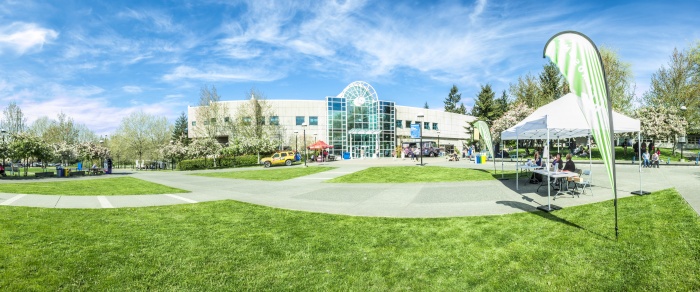Camosun College recently received $280,980 from the federal government to go towards services that aim to increase local business innovation.
The money, which came in the form of two Applied Research Tools & Instruments awards from the Natural Sciences and Engineering Research Council of Canada (NSERC), is going towards biofermentation equipment that will be used for microbreweries on the island and Camosun’s robotic automation services for manufacturing businesses.
Out of the total amount, $149,999 is going to the biofermentation equipment and $130,981 is for the robotic automation services.
“It’s awesome news,” says director of Camosun applied research & innovation Tim Walzak. “We’re always excited when we can add capabilities to what the college can provide to both our faculty and our students, so we’re very excited about it.”

Walzak says that the robotic automation equipment will be “state-of-the-art” and will be used to assist local companies to improve their productivity.
“A lot of the local companies are small to medium size and a lot of barriers for improving their scale and scope is around process automation,” he says. “We’re committed as a college to provide some of that expertise to these companies.”
And while the companies will benefit, so will Camosun students, says Walzak.
“The intent is once this equipment is installed is to integrate the capabilities of the equipment into the curriculum,” he says. “So students will get exposed to the latest technology as well as demonstrations of how that technology is being used to solve company problems. I think it’s an absolutely wonderful way to prepare them for employment with those companies.”
As for the more tastebud-tantalizing way the money is being put to use in biofermentation, Walzak says that the college has been in talks with local microbreweries to help understand what some barriers are for their industry. A big one is a matter of scale.
“Imagine going from a small-scale brewery to one that’s moving many hundreds of bottles an hour; that’s a process automation requirement,” he says. “Embedded in that are things like process controls, and how do you monitor incoming quality control, how do you ensure that the quality of the product that moves through your process is consistent? So it’s an opportunity to set up a mini testing facility on campus to extend the range of our analytical capabilities and bring interesting information back to our industry partners, but it’s also a pretty fertile ground for student training.”
The Camosun College Student Society (CCSS) says that they are “very pleased” that the government has chosen to put money into these areas, but point out that there are still other cuts happening in postsecondary that shouldn’t be forgotten.
“We are deeply troubled that this is being done while massive cuts are being given to ESL in the form of $1.4 million,” says CCSS external executive Rachael Grant.
NSERC media and public affairs officer Martin Leroux says that Camosun stood out as deserving of the awards for a couple reasons.
“The Camosun applications demonstrated to the college and community innovation review committee a strong need for the equipment,” says Leroux, “and emphasized a good potential to foster and stimulate collaborations with a number of local companies.”
Leroux says the committee had to choose from 145 applications, including Camosun’s. They awarded 85 grants in total, two of which went to Camosun.
“Camosun’s applications demonstrated how the research equipment would foster and enhance the ability of the college to undertake applied research, innovation, and training in collaboration with local companies,” says Leroux.
